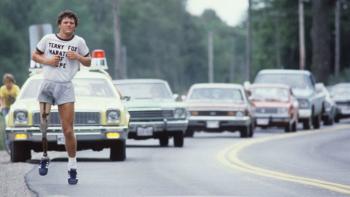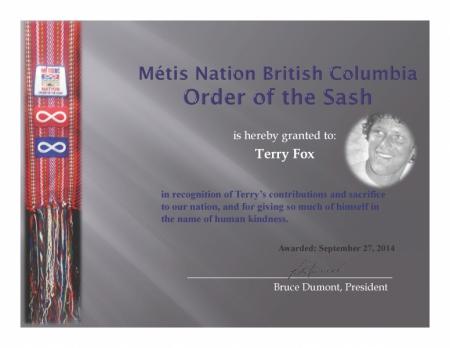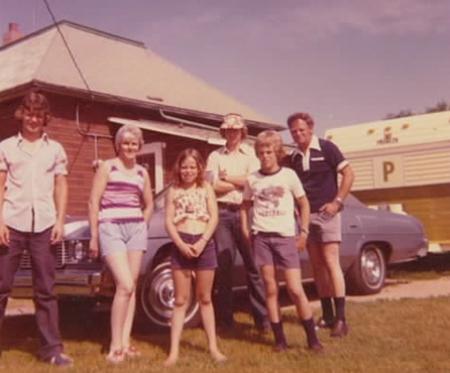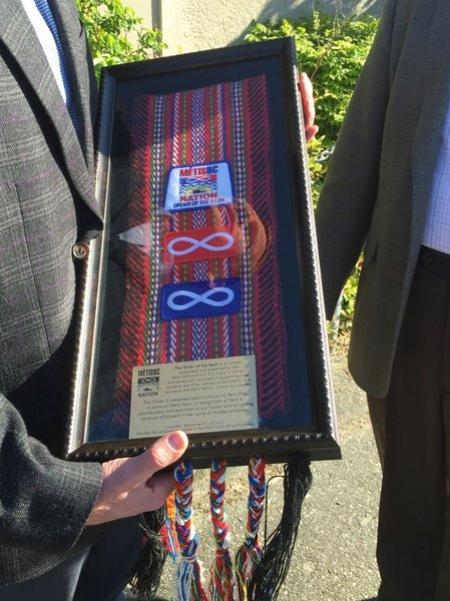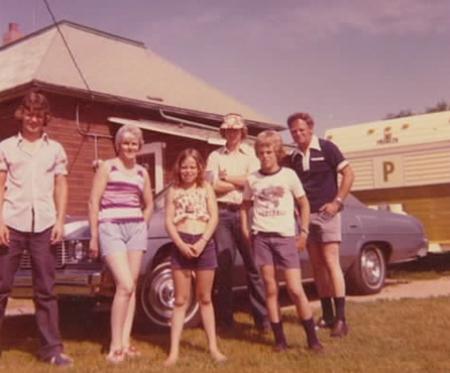Image Caption
Summary
{ALBUM_998707}
By Sam Laskaris
Windspeaker Contributor
TORONTO
Family members of one of Canada’s legendary sports figures are looking to promote their Indigenous ancestry.
Darrell Fox, the younger brother of the late Terry Fox, shared details of his family’s Métis ancestry with those who attended the closing ceremonies of the North American Indigenous Games (NAIG) this past Saturday in Toronto.
At the ceremony Fox showed a four-minute video about his family’s history, including the fact his maternal grandmother Marian Gladue (nee Wark) was Indigenous.
“I thought it was well received,” Fox said of his presentation at the NAIG ceremony. “And I thought it was a perfect opportunity to share our Métis ancestry with athletes.”
Fox felt it was appropriate the video was shared at a multi-sport competition because his brother viewed himself as an athlete.
In fact Fox said one of his brother’s proudest moments came in 1980 when he won the Lou Marsh Trophy. The award is annually presented to the top athlete in Canada.
Terry Fox became a household name in 1980. Despite the fact he had a cancerous leg amputated, he decided to attempt a cross-Canada run in order to raise funds and awareness for cancer research.
Fox began his Marathon of Hope in April of 1980 near St. John’s, Nfld. The plan was to run roughly a marathon a day (42.2 kilometres) and eventually end in Victoria, B.C.
After covering more than 5,300 kilometres, Fox was forced to abandon his cross-country trek in early September just outside of Thunder Bay, Ont. Shortly afterward it was revealed Fox’s cancer had returned.
He died the following June at the age of 22.
But Fox’s memory has lived on through the Terry Fox Run, which has been held annually in communities around the world since 1981.
The walk/run, held each September, has raised more than $700 million for cancer research since its inception.
Darrell Fox said it was only about three to four years ago that he first heard about his grandmother’s Indigenous background.
“I’d like to think I was quite close to my grandma,” he said. “But she never talked about it.”
Fox said he learned about the Indigenous ties from other family members who had been exploring the family history, though back in his grandmother's days, people were often reluctant to share such a fact.
“It was just the stigma of it,” Darrell Fox said of his grandmother’s desire not to talk about her background.
“She did not like the fact she had Native blood in her. She didn’t want people to know.”
But Darrell Fox said family members are proud and more than willing to discuss the family history now.
At its 2014 annual general meeting the Métis Nation British Columbia (MNBC) posthumously awarded the Order of the Sash to Terry Fox.
An overseas commitment prevented Darrell Fox from attending that ceremony, but he received Terry’s sash at a presentation in the spring of 2015. That same day Darrell Fox also received his sash after he established his Métis citizenship.
Siblings Judith and Fred Fox also plan to complete the necessary paperwork in order to receive their Métis citizenship.
“We’re quite proud of that heritage,” Judith Fox said.
Judith said both her siblings and herself have fond memories of their grandmother, who died in 2001.
“She was a very instrumental figure in our lives,” she said.
She recalls many of her summers as a youth were spent partly in Manitoba with her grandmother. Her grandmother also came and stayed in the Fox family home in British Columbia, assisting the family as much as she could in Terry’s final year.
Darrell Fox said he is still trying to piece together as much information as he can about his grandmother, as well as other family members.
“I’m fascinated with history and obviously about the family history,” he said.
Darrell Fox believes his grandmother was born in 1910 in North Dakota. Her family moved to Manitoba during some point of the First World War.
Darrell Fox said his family will be looking to further promote his family’s Indigenous connections now.
“We look forward to working with Métis Nation B.C.,” he said. “They’re definitely onside.”
Fox believes getting more attention of his family’s Indigenous ties could result in more Indigenous people participating in the annual Terry Fox Run.
“If they don’t organize their own run (on a First Nation) then hopefully they will get involved with an existing run,” he said.
Michael Dumont, MNBC’s Minister of Sport, is hoping word of the Fox Indigenous background spreads.
“We want everyone to know Terry Fox and his family are Métis,” said Dumont, who is also MNBC’s Minister of Economic Development.
“What an amazing inspiration to our youth and to Métis, First Nations and Inuit people in Canada and truly Indigenous people everywhere to know that Canada’s national hero, Terry Fox, is in fact Indigenous.”

